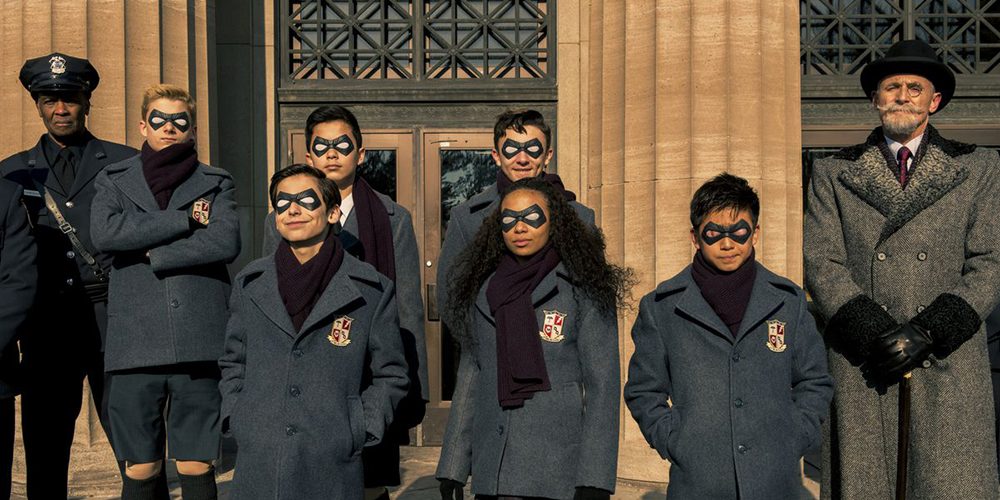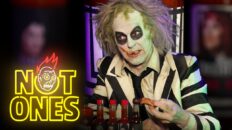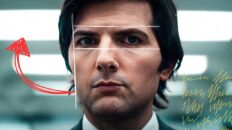On the twelfth hour of the first day of October, 1989, 43 women around the world gave birth. This was unusual only in the fact that none of these women had been pregnant when the day first began. Sir Reginald Hargreeves, eccentric billionaire and adventurer, resolved to locate and adopt as many of the children as possible.
He got seven of them.
This is the premise to Netflix’s original superhero series, The Umbrella Academy, and the show jumps right into it without hesitation, continuing on with a chaotic introduction to five of these children nearly 30 years later. The series, created by Steve Blackman and Jeremy Slater but adapted from a comic series by My Chemical Romance frontman, Gerard Way, and Gabriel Bá, continues on at this frenetic pace for its entire run. I went into this series with zero background knowledge and thus zero expectations and was surprised by how much I enjoyed it. I was also surprised to see Way’s name in the credits, as I was not aware that the lead singer of the most emo band of the mid-aughts had created a comic book series.
As it turns out, some of the children born on this day developed superpowers from a young age. The seven who were adopted by the billionaire, Sir Reginald Hargreeves (Colm Feore), were trained to fight crime as a team, famously known as The Umbrella Academy. As adults, they have all drifted apart but reunite after the death of Hargreeves under suspicious circumstances. When their missing brother mysteriously returns after the funeral, they are pulled into a bid to prevent the impending apocalypse while dealing with their own baggage.
There are so many characters and so much going on that it takes a couple of episodes to really pick up on what is happening and what this show is all about. Since I believe it is about the characters first and foremost, it is worth talking about each of them. There are considerable differences between the comic and show versions of the characters but one thing remains the same: although Hargreeves never gave the children more than a number for a name, most of the seven have named themselves:
Number 1. Luther (Tom Hopper): A handsome but hulking brute of a man who hides a shameful secret under his heavy trench coat. Luther, whose power is immense strength, fancies himself the leader of the team (he is “number one” after all) and holds a grudge against his siblings for abandoning their ‘father’ one by one. Luther, the last holdout, has spent the last several years isolated on the moon, investigating a lead given to him by Hargreeves. He comes off as a boy scout with a noble streak, but no one is really interested in listening to him.
Number 2. Diego (David Castañeda): A hot-headed vigilante whose power is ill-defined and seems to be extreme accuracy in throwing knives. Diego and Luther have always competed to be the ‘leader’ and this rivalry has continued on into adulthood. Diego left the family but didn’t stop fighting crime, he just does it off the books now, which has led him to a relationship with a local detective, Eudora Patch (Ashley Madekwe), which is equal parts flirtatious and contentious.
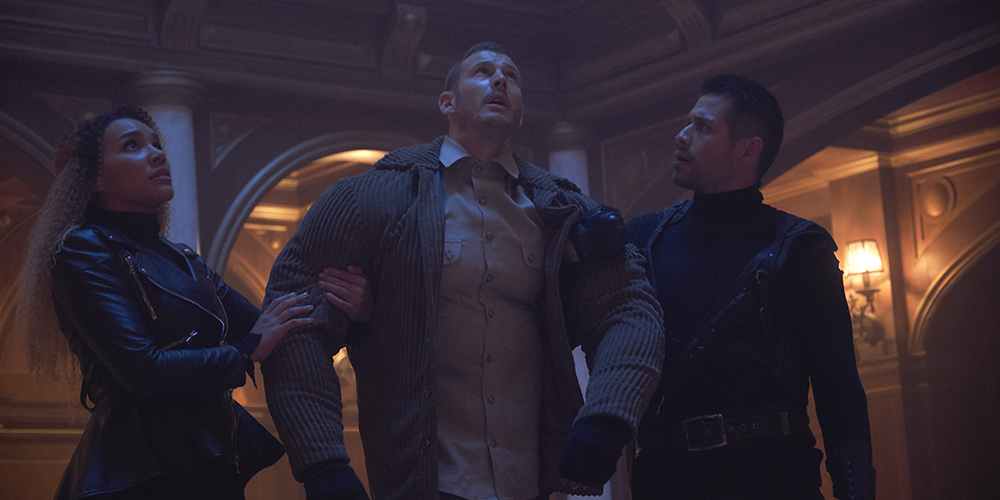
Number 3. Allison (Emmy Raver-Lampman): Dubbed The Rumor, Allison has grown up to be a beautiful celebrity with an estranged husband and young daughter she is not allowed to see. Both aspects of her character seem to be connected to her ability: getting people to do whatever she asks of them, so long as she starts the sentence with “I heard a rumor…” Allison and Luther had feelings for each other as kids that never fully manifested since the family fell apart but the funeral brings all the feelings flooding back.
Number 4. Klaus (Robert Sheehan): As a child, Klaus’ ability to see and speak to the dead traumatized him. As an adult, he has transformed into a mercurial, sarcastic addict, partaking in any vice that will help him stifle the dead’s constant presence in his life. He is a mess of a human being but helpful when he is not being overlooked, which is the norm. One thing he cannot do, however, is contact the spirit of Reginald Hargreeves to find out if their ‘father’ was murdered.
Number 5 (Aidan Gallagher): The only Hargreeves sibling without a name, Five is a superbly overconfident manipulator of time and space. He can teleport himself with speed and skill, but his rebel tendencies caused him to defy Hargreeves and attempt to manipulate time when the siblings were 13. When Five left home, he found himself in a barren, post-apocalyptic landscape he couldn’t return from. He spent 50 years wandering alone before being roped into a time-traveling assassins’ guild… which he promptly defied to return to the present and prevent the apocalypse. Inexplicably, Five, mentally in his 60s, returns to his 30-year-old siblings in the body of the 13-year-old that left. It’s a mind-bender, but it totally works thanks to superb casting. I had no problem believing the teenaged Gallagher was a much older man.
Number 6. Ben (Justin H. Min): Ben is the Hargreeves sibling who has died at some point in the past. Although the details are never given (in comic book or TV show), it seems to have been traumatic and Luther retains some guilt over it. When he was alive, Ben harnessed the power of otherworldly demons that he let loose in a kraken-like display that obliterated enemies. In death, Ben hangs around Klaus, attempting, often futilely, to steer his brother in the right direction.
Number 7. Vanya (Ellen Page): Vanya is the only sibling that grew up believing she had no powers. This perceived inferiority isolated her from her siblings, who are often mean to or dismissive of Vanya, especially after she wrote a tell-all book exposing The Umbrella Academy’s secrets to the world. Numb and suffering from low self-esteem, Vanya tries and fails to reach out repeatedly, eventually finding validation in outside sources that may not have her best interest at heart. It is technically a spoiler to say that Vanya finds out she has powers after all… but the reveal was also the most predictable plot line in the entire season. The extent of her immense power was still a bit of a surprise; as it turns out, Vanya is so strong, Hargreeves had to hide all evidence of her powers and keep them stifled with mood-altering drugs to prevent catastrophe.
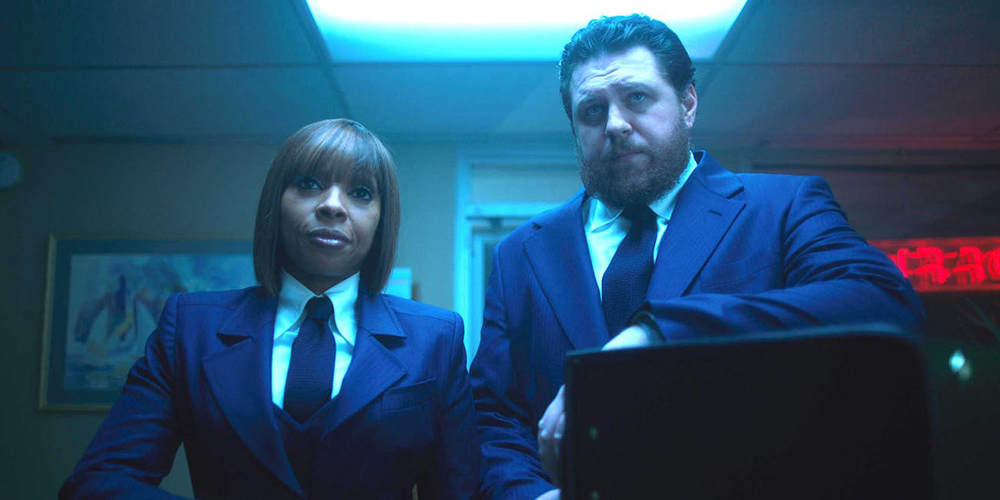
There is also a subplot involving Five’s time-traveling colleagues, Cha Cha (Mary J. Blige) and Hazel (Mindhunter’s Cameron Britton), as they attempt to track down Five and stop him from stopping the apocalypse. This storyline, though a bit out of order from the comic series, was a welcome addition, partly because it helped to explain Five’s character and partly because the magnetic Cameron Britton provided a lovely little subplot where he romances a bird-watching waitress (Sheila McCarthy) and reconsiders his life choices.
The Umbrella Academy is far from a perfect series. The pacing is frenetic and most of the plot arcs were predictable. The show made a stylistic choice for nobody to own cell phones or drive modern cars (this is likely an homage to the fact that the comic series takes place in the 70’s. It’s only a problem if you object to stylistic choices; in my opinion, it added to the weird flavor of the show). Even those who find joy in the exploration of the characters may struggle at the beginning, when they all have their own arcs and do not interact much. Nearly all of the characters are extremely divisive too; some viewers may find Klaus annoying at first but a dramatic shift at the midway point turns him into one of the most interesting characters and Sheehan brings a charisma and vulnerability that are difficult to dismiss. Diego starts off as a grumpy jerk but softens and becomes more bearable (maybe even likable) when he drops the lone wolf act and starts interacting with his siblings more. Luther starts off as a vanilla “good guy” archetype, which is fine, but I rapidly lost sympathy for him after a few too many sanctimonious speeches and hypocritical actions.
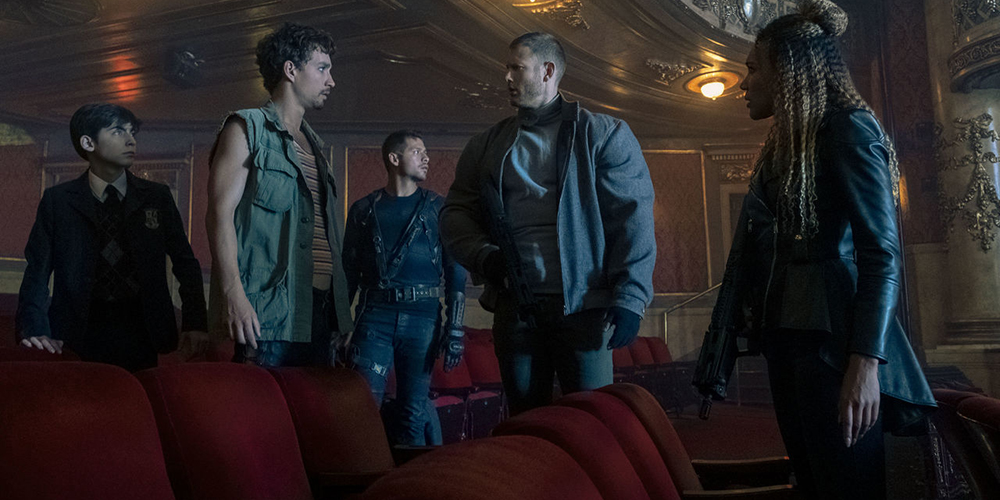
But nobody from the cast is more divisive than Vanya. Number seven’s arc in this season is entirely relatable but her actions when the truth is revealed may be too much for some viewers to overcome. In the first half of the season, it’s easy to sympathize with Vanya. She had to watch all her siblings run off and be heroes, fighting bad guys while she watched from the sidelines (even Klaus, who frankly, without an active power, had no business being there) and the moment she tries to reach out to them with something that is meaningful to her, they dismiss her because more important things are happening. When the real Vanya starts to break out, bad things happen and some of them are excusable as accidents, but she inarguably takes her vendetta way too far and it’s debatable whether she was out of hand before her powers were stifled as well. Even four-year-old Vanya was throwing nannies through windows with no regard to their safety and could have killed any of them. Hargreeves was wrong to suppress the girl, but her victims (with maybe the exception of her manipulative boyfriend [John Magaro]) did not deserve what they got. The only way Vanya’s rampage can be excused is if her powers cause her to not be in control of her faculties.
Given how divided the Hargreeves siblings are throughout the season, it was interesting to see them come together and end the season on a curious cliffhanger with implications that will have to wait for the recently-announced season two. While the show has source material to draw from, it may be better off exploring stories at its own pace. There are two main things that I hope the show explores in season two, although I am keenly aware that the comics themselves have not elaborated on either topic: the circumstances surrounding Ben’s death and what exactly is up with the other 36 kids born on October 31st. The latter was a misstep I felt could have improved the story, but I feel confident it will be explored at its own pace. In the meantime, there is plenty of plot to go around. I look forward to a more unified season two and, while I enjoy the characters as they’ve been established, it will be nice to see them right some of the wrongs of their past.


